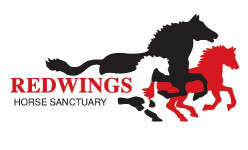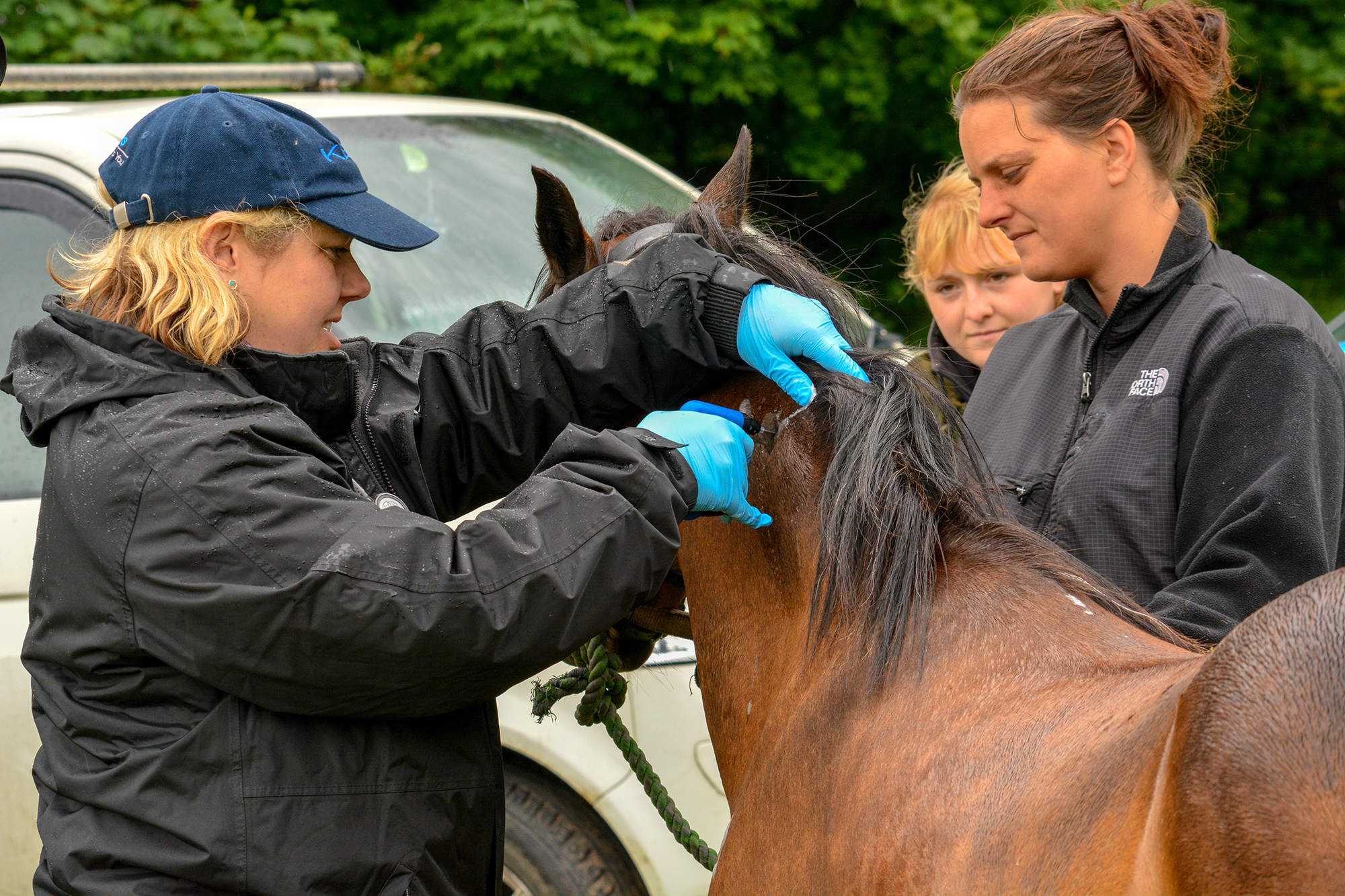Posted: 8th September 2020 | Back to news feed

Are you ready for the new microchipping rules? From 1st October 2020 all horses and donkeys in England must be chipped and registered by law, regardless of their age. Equines in Wales must be microchipped by 12th February 2021 and in Scotland by 28th March 2021.
Redwings’ Head of Veterinary Care, Nicky Jarvis explains how and why the charity is working hard to make sure its residents are microchipped in line with the new legislation:
Caring for 1,500 rescued residents means Redwings’ veterinary team has been doing a LOT of microchipping ready for the new legislation in October. It’s been quite a challenge, especially as many of our residents are nervous, but there are lots of benefits for individual horses and the charity to have our horses chipped, in addition to being on the right side of the law!
Microchips are tiny, no bigger than a grain of uncooked rice. The same kind of chip is used for dogs and cats as well as horses. Each chip comes with its own needle, which is sterile and used just once. The vet spends time cleaning the site on the horse’s neck so that it is completely sterile before the chip is inserted into the nuchal ligament (within the crest of the neck) where the horse can’t feel it.

We have many needle-shy and nervous horses at Redwings, but routine vaccinations and injections for treatment are essential alongside microchipping. Our teams aim to keep horses relaxed and provide positive associations during any procedure and spend time working with them ahead of a vet visit if need be. We use a lot of positive reinforcement with nervous residents, such as clicker training.
To see clicker training in action go to
A vet may use a small amount of local anaesthetic on the area where the microchip is inserted, but many horses are happy with a bit of fuss or a handful of feed for the few seconds it takes to place the chip.
Microchipping normally takes about 15 minutes, and the insertion itself takes just a couple of seconds. Some horses may have a slight swelling where the chip has been placed for a few days, which is quite normal. We do keep an eye out for any sign of infection, but this is very rare as we keep everything so sterile. We give our ridden horses a few days off afterwards, just to allow any swelling or sensitivity to disappear.
We have so many wonderful residents at Redwings, and many are with us because they are elderly, young or have long-term health issues. But whatever their story, all will be microchipped and registered on the Central Equine Database. We also keep their microchip number on our own equine database. The procedure is extremely low-risk and there should be no additional concerns about microchipping an older equine. Foals are already required to be chipped and registered either within six months of their birth or by the end of the year in which they are born, whichever is longer.
Although microchipping all Redwings’ horses is a big investment of time and money, we are fully supportive of the new legislation. As both a horse owner and a welfare organisation, we know microchipping has many benefits, including:
- Reuniting stray horses with owners
- Helping recover stolen horses and deterring thieves
- Sharing information on stolen horses
- Checking age and ownership when buying a horse
- Helping trace owners of horses who have been neglected or abandoned
- Reducing illegal and fraudulent horse sales
- Ensuring a horse cannot enter the food chain
- Building a picture of the UK horse population so we can better understand and support it
There is also potential for microchips to support horse health by recording vaccination records and sensitivity to medications that can be passed to a new owner and their vet. As a charity that rarely knows the medical history of horses coming into our care, this information would be invaluable at Redwings!
I already put microchips to good use at Redwings as I can check chips easily with a handheld scanner to ensure I treat the right horse on my rounds. In a field of 20 coloured cobs it can be good to double-check!
Microchipping is also vital for the more than 500 Redwings equines who live in private homes through our Guardian scheme. Their microchip and passport enable them to travel and provide an important link to us should they be lost or stolen. These horses have often had difficult pasts and deserve every protection we can offer them to stay safe in the future.
Find out more about microchipping here (https://www.redwings.org.uk/news-and-views/has-your-horse-been-microchipped), including a link to the Equine Register’s ‘Digital Stable’
The Equestrian Index newsfeed is compiled from articles submitted by advertising members and expresses the opinions of those members. Contributors are responsible for ensuring they have the necessary rights and permissions for all content, including text and images. Watsons Directories Ltd shall not be held liable for any inaccuracies, mis-statements, or copyright infringement therein.